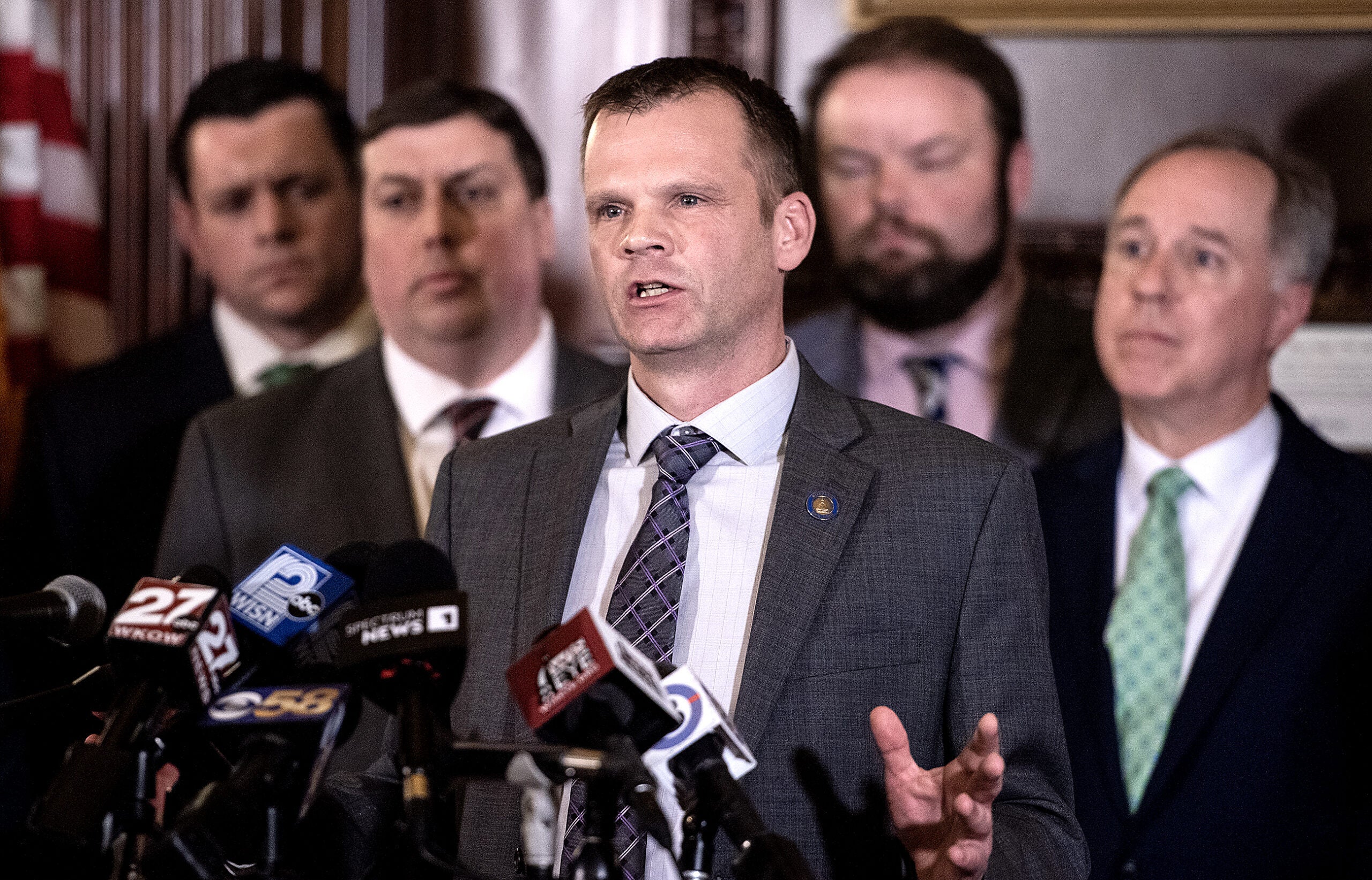Republican lawmakers appear poised to take another swing at passing new legislative voting maps this week, with another GOP redistricting bill scheduled for a vote on Tuesday.
What precisely those maps would look like remains to be seen, but Senate Majority Leader Devin LeMahieu has said passing unchanged versions of maps drawn by Gov. Tony Evers is on the table.
Among the myriad bills on the Senate’s Tuesday floor session calendar is legislation that would create an “Iowa-style” redistricting process in Wisconsin. In late January, Republicans amended a state Assembly version of that bill, replacing it with new legislative maps that were similar to those Evers submitted to the Wisconsin Supreme Court as part of an ongoing redistricting lawsuit.
Republicans made changes to Evers’ maps to protect some GOP incumbents and passed them within a 24-hour period with no public hearings. Evers vetoed the maps on Jan. 30, saying he would only sign the exact maps he submitted to the court.
News with a little more humanity
WPR’s “Wisconsin Today” newsletter keeps you connected to the state you love without feeling overwhelmed. No paywall. No agenda. No corporate filter.
It’s unclear what will happen in the Senate, but the scheduled vote and recent comments from LeMahieu, R-Oostburg, have sparked intrigue in political circles.
Last Wednesday, LeMahieu said passing the governor’s exact maps is “an option we might look at.”
“I don’t know if the Democrats will vote for that,” LeMahieu said.
Evers himself has remained open to signing his maps if they pass the Legislature without changes, though he sounded a skeptical note when asked about the possibility last week.
“I’ll believe it when I see it,” Evers told reporters.
Lawyers for Republicans have criticized Evers’ maps
Republican leaders’ recent interest in Evers’ maps has fueled speculation in political circles, partly because lawyers for GOP legislators have argued against Evers’ maps in court. One of their objections has to do with what they call “Senate disenfranchisement.”
Because state senators’ terms are staggered, the attorneys say changing those districts via the court will result in tens of thousands of voters being unable to pick a new senator until 2026.
“If voters are ‘unnecessarily’ disenfranchised or targeted for disenfranchisement, that could raise constitutional concerns,” the Legislature’s attorneys said.
Loyola Marymount University Law School Professor Justin Levitt said it’s possible Republicans would consider passing Evers’ maps because they’re preferable to other Democratic options presented to the Wisconsin Supreme Court.
Still, Levitt calls the Legislature potentially passing maps it has argued against in court “a little bit of a red flag.”
In Wisconsin, Levitt theorized, if the Legislature approves Evers’ maps and the governor signs them, a new lawsuit could be filed in a conservative-leaning federal court arguing the would-be Senate voters are being disenfranchised.
Levitt said he doesn’t buy the disenfranchisement argument and it “hasn’t picked up any steam” in similar cases around the country. Still, he said a new federal lawsuit could benefit Republicans.
“It’s also possible that the end game is, ‘Let’s muck this out in court long enough that we end up running for office in 2024 this fall using the same maps we’ve been running in,’ that are egregiously gerrymandered by anybody’s definition,” he said.
Attorneys who represented Democrats in Wisconsin’s current redistricting battle have scoffed at similar claims in social media posts.
Mark Gaber, who represented the democratic voters who brought the lawsuit that led to the Supreme Court declaring current Republican-drawn maps unconstitutional, called the theory “literal gibberish.”
Doug Poland, who has represented Democrats in several redistricting lawsuits dating back to 2012, questioned why the theory is even being discussed.
“People really think that if the GOP-controlled Legislature and Dem. Governor agree on legislation adopting new districts that a federal court challenge will undo that? On what theory?” Poland said.
Spokespersons for LeMahieu and Assembly Speaker Robin Vos, R-Rochester, did not respond to requests for comment.
A spokesperson for Evers referred WPR to the governor’s comments made after he vetoed the GOP version of his maps in late January, in which Evers said allowing politicians “to move district lines so their party can retain political power doesn’t help root out gerrymandering from our democracy; it further entrenches it.”
Wisconsin Public Radio, © Copyright 2025, Board of Regents of the University of Wisconsin System and Wisconsin Educational Communications Board.






